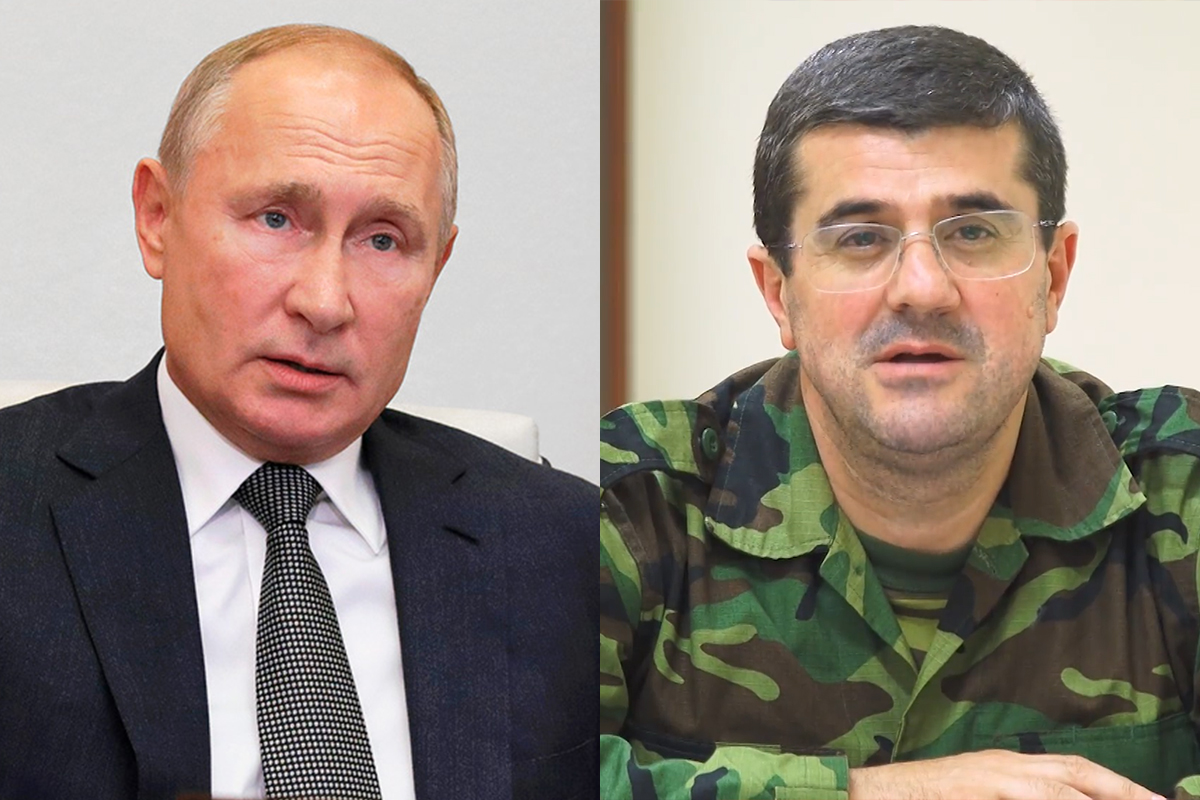To: President of the Russian Federation:
Mr. Putin V.V.
Dear Vladimir Vladimirovich!
The relations between Artsakh and Russia have a long history. Russia is perceived in the historical memory of the people of Artsakh as a fraternal country, which in the most difficult situations has always extended a helping hand to this part of the Armenian people.
Russian-Artsakh relations reached a qualitatively new level during the heyday of the meliks (principalities) of Artsakh, about which there is a lot of documentary evidence.
For more than a century (from the beginning of the 19th to the end of the second decade of the 20th century), Karabakh was part of the Russian Empire. This historical period was marked for Karabakh by a long period of peace, creation, repatriation of compatriots expelled from their native lands and economic recovery. Cultural life has reached particular development. Thus, since the second half of the 19th century, the administrative and political center of Artsakh, the city of Shushi, has been one of the most important cultural and economic centers of the entire Transcaucasia.
In the same historical period, a whole galaxy of Karabakh Armenians played an important role in the military-political and social life of Russia. Valerian Madatov, Ivan Lazarev, Lazar Serebryakov, Mikhail Loris-Melikov, Vasily Bebutov and others occupy a special place among them.
Close bilateral ties were maintained during the Soviet period as well. About 90 thousand Armenians from the Nagorno-Karabakh Autonomous Region and historical Artsakh fought on different fronts of the Great Patriotic War, half of whom fell defending their Motherland. In terms of the number of heroes of the Soviet Union and holders of the Order of Glory (Knights of the Order of Slava) per capita, Artsakh occupied one of the first places in the USSR.
All five Marshals of the USSR of Armenian origin – Ivan Bagramyan, Ivan Isakov, Hamazasp Babadzhanian, Sergey Khudyakov (Armenak Khanferyants), Sergey Aganov – were from Artsakh. More than thirty generals and thousands of officers showed commanding talent and heroism in defending the Motherland. Brothers Anastas and Artem Mikoyan, Ivan Tevosyan, Andranik Iosifyan, Nikolai Yenikolopov, Mikael Tariverdiev and many other figures also had Artsakh roots.
Close relations between Artsakh and Russia continue to this day. A significant part of the representatives of the three million Armenian Diaspora in Russia are natives of Artsakh, among whom there are many forcibly deported as a result of the policy of genocide and ethnic cleansing carried out by the Azerbaijani authorities in the late 1980s and early 1990s.
I would especially like to emphasize that at all stages of the settlement of the Azerbaijan-Karabakh conflict, Russia strictly observes the provisions of international law and the peaceful settlement of the conflict on the basis of the principle of non-use of force and the threat of force. In the process of settling the Azerbaijani-Karabakh conflict, Russia acts both as a co-chairing country of the OSCE Minsk Group and as a country that has its own special role in maintaining peace and stability in the region. The Artsakh Republic highly appreciates the mediation efforts of Russia, its active role and decisive contribution at all stages of the conflict settlement and the achievement of the 1994 Trilateral Ceasefire Agreement. Russia also played a decisive role in restoring peace and stability during the next escalation of the Azerbaijan-Karabakh conflict in 2016. On 5 April, 2016, it was with the mediation of Russia in Moscow that an agreement was reached on the cessation of hostilities and the restoration of the 1994 ceasefire.
We highly appreciate the active efforts of Russia and your personal contribution aimed at stopping large-scale military operations and Azerbaijan’s aggression against Artsakh. I would also like to inform you that in the Republic of Artsakh and among the entire Armenian people your speech at the meeting of the “Valdai” Discussion Club and your objective assessments of the current situation received a great response.
In your speech, you stressed the following: “This conflict began not just as an interstate conflict and a struggle for territories, it began with ethnic confrontation. Unfortunately, it is a fact when in Sumgait, and then in Nagorno-Karabakh, cruel crimes were committed against the Armenian people. We must take all this into account as a whole. Unfortunately, to this day Azerbaijan continues to pursue this policy of genocide.
Dear Vladimir Vladimirovich,
You are a person and leader with immense personal authority in the world and in our region. I ask you to do everything possible to end hostilities and resume political processes in the zone of the Azerbaijani-Karabakh conflict.
With best wishes,
Arayik Harutyunyan,
President of the Artsakh Republic















